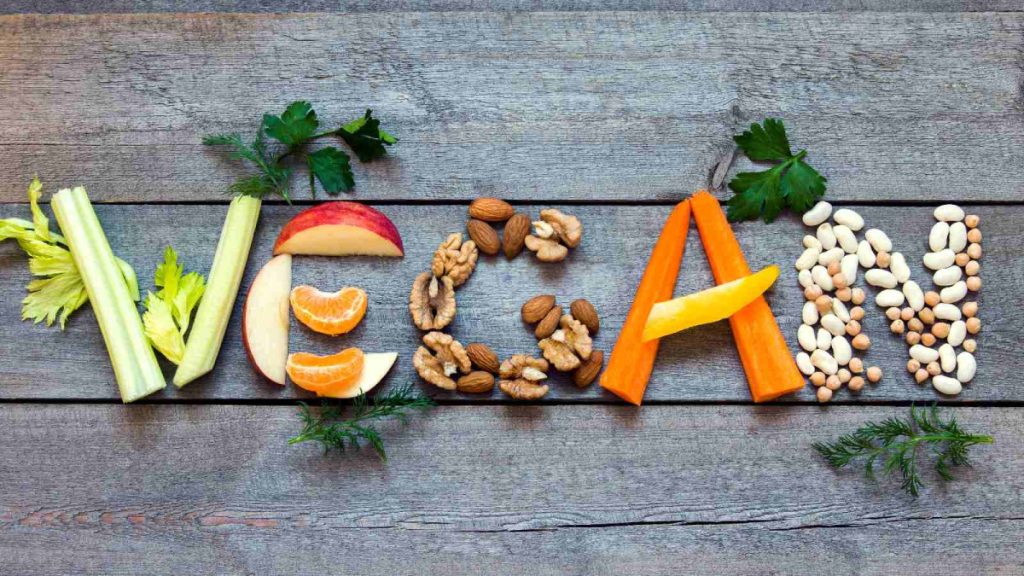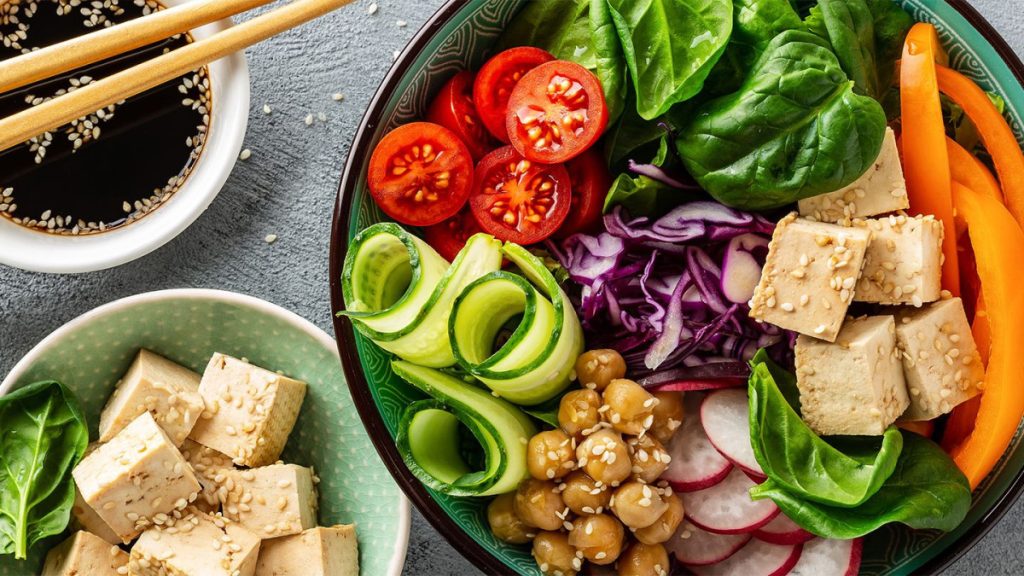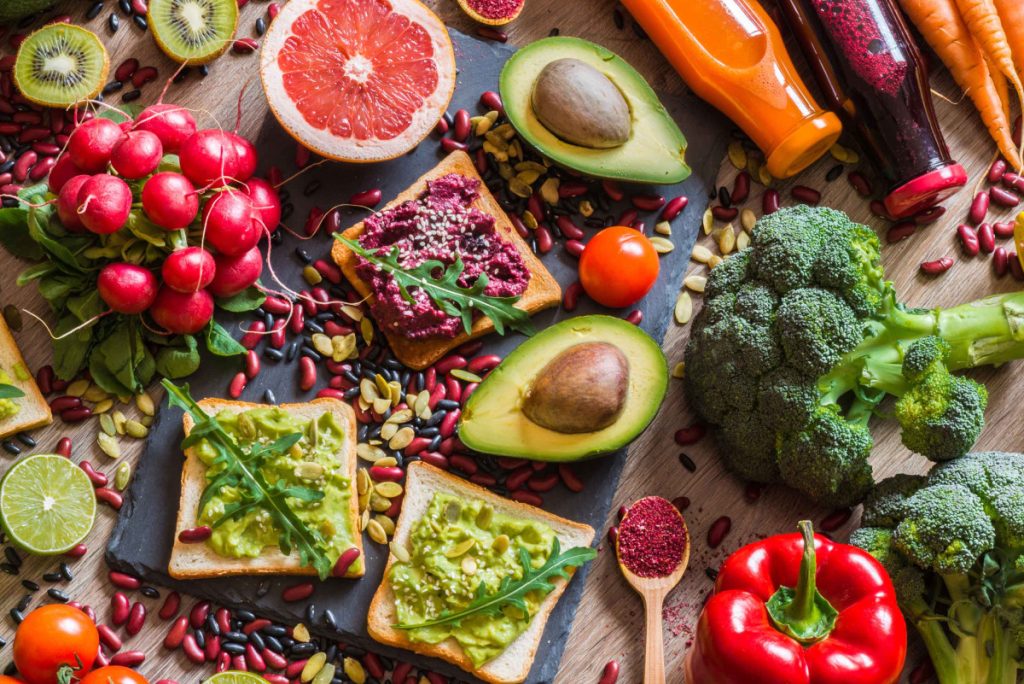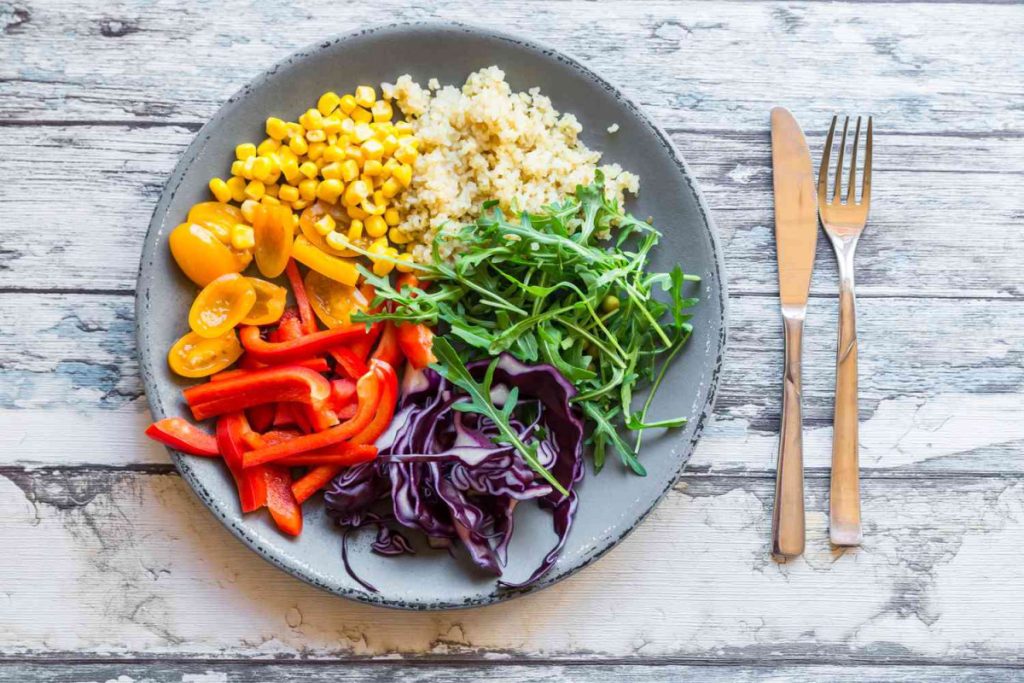In recent years, the vegan lifestyle has gained tremendous popularity, and it’s not just a passing trend. More and more people are choosing to go vegan for a variety of reasons, including personal health, compassion for animals, and environmental sustainability. In this article, we’ll explore the world of vegan food and the compelling reasons to make the switch to a vegan life.
What is Veganism?
Veganism is a dietary and lifestyle choice that eliminates all animal products, including meat, dairy, eggs, and other animal-derived ingredients, from one’s diet. A vegan diet primarily consists of fruits, vegetables, grains, legumes, nuts, seeds, and plant-based alternatives to traditional animal-based products.

Health Benefits of Choosing Vegan Lifestyle:
- Lower Risk of Chronic Diseases: Studies have shown that a well-balanced vegan diet can lower the risk of heart disease, high blood pressure, type 2 diabetes, and certain types of cancer. It can also help maintain a healthy weight.
- Reduced Cholesterol Levels: Vegan diets are typically low in saturated fats, leading to lower cholesterol levels and better overall heart health.
- Higher Nutrient Intake: A vegan diet often provides higher levels of essential nutrients such as fiber, antioxidants, and vitamins C and E.
- Weight Management: Many people find that they naturally lose weight or maintain a healthy weight when following a vegan diet due to the reduced calorie density of plant-based foods.
Compassion for Animals:
One of the most significant reasons people choose a vegan lifestyle is their concern for the well-being of animals. The meat and dairy industries are associated with practices that involve cruelty and suffering. By going vegan, individuals make a compassionate choice to avoid supporting these industries.
Environmental Sustainability:
The production of animal-based foods has a substantial impact on the environment. It leads to deforestation, habitat destruction, and increased greenhouse gas emissions. Choosing vegan foods can significantly reduce one’s carbon footprint and contribute to a more sustainable planet.

Promoting Biodiversity by choosing vegan lifestyle:
Vegan diets often rely on a diverse range of plant-based foods. By choosing these foods, you encourage the cultivation of a wider variety of crops, which, in turn, promotes biodiversity and sustainable farming practices.
Also Read: Pentagon Unveils Nuclear Bomb 24 Times Stronger than Hiroshima’s
Embracing Vegan Food:
- Plant-Powered Protein: Vegan sources of protein, such as beans, lentils, tofu, and tempeh, provide all the essential amino acids your body needs.
- Diverse Flavors: Vegan cuisine is far from boring. With a rich array of fruits, vegetables, herbs, and spices, there’s an exciting world of flavors to explore.
- Healthier Snacking: Snack options like nuts, seeds, dried fruits, and veggie sticks with hummus are not only tasty but also nutritious.
- Ethical Food Choices: Vegan food choices promote ethical treatment of animals and respect for their lives.
- Environmental Responsibility: By choosing vegan, you’re contributing to a more sustainable planet and helping to protect ecosystems and wildlife.
Making the Transition:
If you’re considering the transition to a vegan lifestyle, start gradually. Begin by replacing a few meals with plant-based options and explore vegan recipes. Seek support from vegan communities, online resources, and cookbooks to make the transition easier and more enjoyable.

Here are some of the best vegan foods to include in your lifestyle:
Veganism offers a wide variety of delicious and nutritious foods.
- Fruits: Fruits are packed with vitamins, fiber, and natural sweetness. Apples, berries, oranges, bananas, and avocados are popular choices.
- Vegetables: A rainbow of vegetables provides essential nutrients. Spinach, kale, broccoli, carrots, and bell peppers are great options.
- Legumes: Legumes are excellent sources of plant-based protein and fiber. Lentils, chickpeas, black beans, and tofu are versatile choices.
- Whole Grains: Whole grains are rich in fiber and complex carbohydrates. Opt for brown rice, quinoa, oats, and whole wheat pasta.
- Nuts and Seeds: Nuts and seeds offer healthy fats, protein, and a satisfying crunch. Almonds, walnuts, chia seeds, and flaxseeds are popular picks.
- Plant-Based Milk: Enjoy a variety of plant-based milk options like almond, soy, oat, and coconut milk.
- Plant-Based Protein Sources: Incorporate foods like tempeh, seitan, and vegan protein powders into your meals to meet your protein needs.
- Tofu and Tempeh: These soy-based products are versatile and can be used in a wide range of savory and sweet dishes.
- Vegan Meat Substitutes: Many brands offer vegan meat alternatives like burgers, sausages, and meatballs made from plants.
- Nutritional Yeast: Nutritional yeast adds a cheesy, umami flavor to dishes and is a good source of vitamin B12.
- Hummus: This creamy chickpea dip is a fantastic source of protein and pairs well with veggies, pita bread, or as a sandwich spread.
- Vegan Cheese: There are many vegan cheese options available, made from nuts or soy, which can be used in cooking or as toppings.
- Seaweed and Algae: Sea vegetables like nori and spirulina provide essential minerals and nutrients.
- Vegan Desserts: Satisfy your sweet tooth with vegan desserts like dairy-free ice cream, dark chocolate, and vegan cookies.
- Herbs and Spices: Enhance your meals with an array of herbs and spices like basil, cumin, paprika, and turmeric for added flavor.
- Vegan Snacks: Opt for healthy snacks like popcorn, dried fruits, roasted chickpeas, and veggie chips.
- Plant-Based Oils: Cook with plant-based oils such as olive oil, coconut oil, or avocado oil.
- Vegan Sauces and Condiments: Use vegan-friendly sauces like salsa, hot sauce, tahini, and mustard to add flavor to your dishes.
- Vegan Grains and Pastas: Experiment with grains like farro, barley, and bulgur, and choose whole wheat or gluten-free pasta options.
- Vegan Breakfast Options: Start your day with oatmeal, smoothie bowls, vegan pancakes, or avocado toast.

These vegan foods can be combined to create a diverse and satisfying plant-based diet that promotes health, supports animal welfare, and reduces your environmental footprint. Be sure to balance your meals to ensure you get all the necessary nutrients, and consider consulting a registered dietitian for personalized guidance on your vegan journey.
In conclusion, embracing the vegan lifestyle is a powerful way to improve your health, show compassion for animals, and contribute to a more sustainable world. It’s not just about food; it’s a conscious choice that extends beyond your plate, positively impacting your life and the planet. Join the growing community of vegans and discover the countless benefits of choosing a vegan life.
Also Read: One Penny at a Time: Practical Tips for Saving Money











